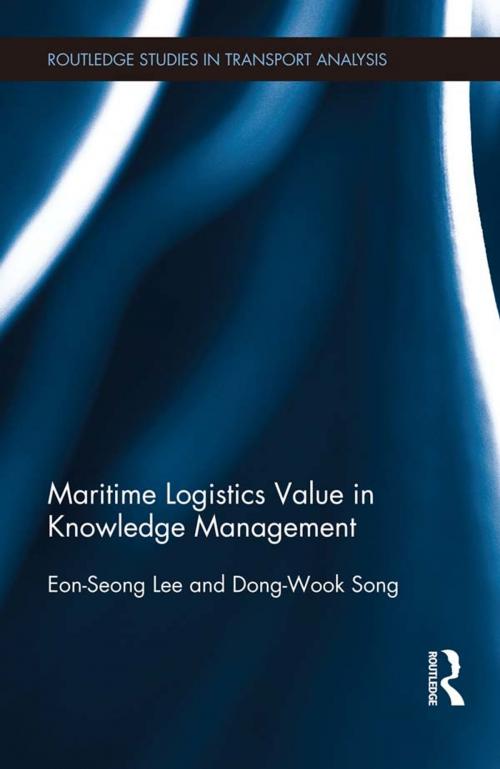Maritime Logistics Value in Knowledge Management
Business & Finance, Industries & Professions, Industries, Economics| Author: | Eon-Seong Lee, Dong-Wook Song | ISBN: | 9781317682455 |
| Publisher: | Taylor and Francis | Publication: | August 21, 2014 |
| Imprint: | Routledge | Language: | English |
| Author: | Eon-Seong Lee, Dong-Wook Song |
| ISBN: | 9781317682455 |
| Publisher: | Taylor and Francis |
| Publication: | August 21, 2014 |
| Imprint: | Routledge |
| Language: | English |
Knowledge management has been widely applied to various industries as a good strategy to help improve firms’ performance. As globalisation accelerates and international trade increases more and more, maritime transport operations have become one of the vitalest industries to receive large attention from international managers. This is because the managers have perceived that the maritime transport system is an integrated entity within the global logistics and supply chain, and it should be therefore managed in the most efficient and effective ways possible, as an organic body within a global logistics system.
Taking this approach, this book examines how maritime transport operators – such as shipping companies, port terminal operators and freight forwarders – could successfully play a role within the global logistics flow wherein they are embedded by improving their logistic value, i.e. maritime logistics value. As per the objective, the current book suggests a knowledge management based solution. It attempts to systematically investigate what types of knowledge are needed in the maritime logistics industry, how maritime operators could effectively acquire the knowledge, and whether the acquired knowledge would help maritime operators enhance maritime logistics value.
This book provides not only comprehensive understandings of knowledge management strategy, but also its practical application to the maritime logistics industry. This would therefore be a useful guidebook for the managers, academics, and undergraduate / postgraduate students in the field of maritime transport and global logistics, to help them to gain comprehensive knowledge of the application of knowledge management strategy to the industry.
Knowledge management has been widely applied to various industries as a good strategy to help improve firms’ performance. As globalisation accelerates and international trade increases more and more, maritime transport operations have become one of the vitalest industries to receive large attention from international managers. This is because the managers have perceived that the maritime transport system is an integrated entity within the global logistics and supply chain, and it should be therefore managed in the most efficient and effective ways possible, as an organic body within a global logistics system.
Taking this approach, this book examines how maritime transport operators – such as shipping companies, port terminal operators and freight forwarders – could successfully play a role within the global logistics flow wherein they are embedded by improving their logistic value, i.e. maritime logistics value. As per the objective, the current book suggests a knowledge management based solution. It attempts to systematically investigate what types of knowledge are needed in the maritime logistics industry, how maritime operators could effectively acquire the knowledge, and whether the acquired knowledge would help maritime operators enhance maritime logistics value.
This book provides not only comprehensive understandings of knowledge management strategy, but also its practical application to the maritime logistics industry. This would therefore be a useful guidebook for the managers, academics, and undergraduate / postgraduate students in the field of maritime transport and global logistics, to help them to gain comprehensive knowledge of the application of knowledge management strategy to the industry.















